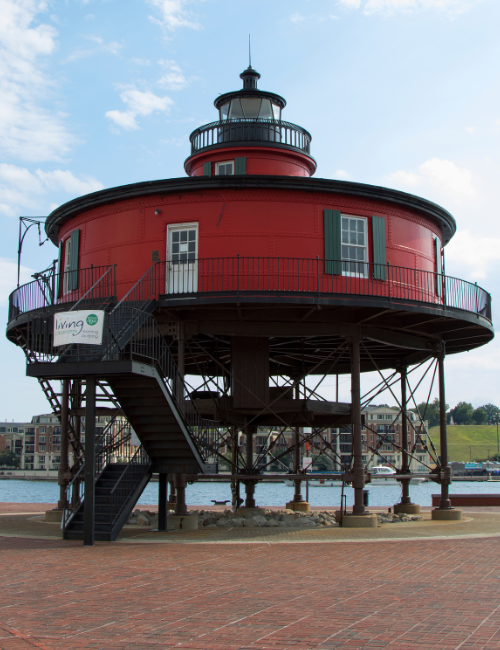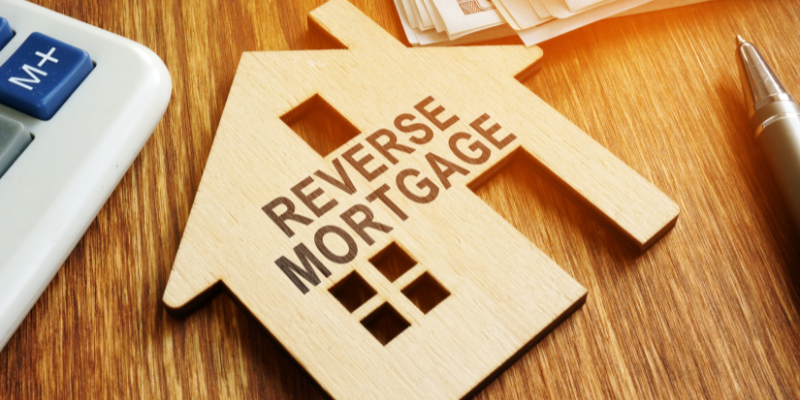
If you have a reverse mortgage on your Baltimore, MD, home, it may be challenging to sell. With this type of loan, people over 65 can obtain more money, but it may be more challenging for them to sell their home, although not impossible. Remember these tips if you want to sell your house for the most money without taking on too much debt. Read this guide to learn more about how reverse mortgages can change the way you sell your Charm City home. It can teach you about the market, how to manage your money, and how to make a sale.
Key Highlights
- Reverse mortgages help seniors in Baltimore convert home equity into cash while staying in their homes.
- Legal guidance in Maryland is crucial due to the complex regulations that affect home sales involving reverse mortgages.
- Outstanding loan balances and accrued interest can impact home equity when selling a home under a reverse mortgage.
- Real estate agents can assist in pricing and marketing homes with reverse mortgages for maximum equity conversion.
- Consulting with financial advisors ensures the successful navigation of legal, financial, and tax implications.
Understanding Reverse Mortgages in Baltimore, Maryland
People in Baltimore, Maryland, who want to turn the value of their home into cash are increasingly turning to reverse mortgages. A mortgage loan is a type of financing that allows residents to access the equity in their home while deferring their mortgage payments. People considering a mortgage loan should understand how it works. To sell your home, you may need to know more about reverse mortgages and how they work. The real estate market in Baltimore, HECM loans, and reverse mortgages are all crucial for effectively handling home equity conversions.
What Are Reverse Mortgages?
Homeowners in Baltimore who are at least 62 years old can get reverse mortgages, also known as Home Equity Conversion Mortgages (HECM). You can get money from the value of your home while you’re still living there. In a typical mortgage, the borrower pays back the loan on time. In a reverse mortgage, the investor pays the homeowner, rather than the homeowner paying the mortgage company. Feel free to use this to save for retirement, pay medical bills, or renovate your house without worrying about making monthly payments immediately. People who borrow money can choose to get it all at once, over time, as a line of credit, or a mix of these. Borrowers in Baltimore can now choose the best approach to meet their own financial needs and adapt to market changes.
However, you should be aware of how these loans will impact you in the long run. People who have loans still have to pay their property taxes, homeowners’ insurance, and keep up with repairs on their houses. Interest and fees can increase the loan amount over time, potentially reducing the home’s equity. Individuals who wish to sell their homes or manage their assets in Baltimore’s evolving real estate market should understand how a reverse mortgage impacts their equity. These tips will help them manage their finances effectively and maximize the value of their homes when they leave.
CR of Maryland I LLC can help homeowners navigate this process with confidence, enabling them to make informed decisions about their property’s future.
How Do Reverse Mortgages Work?
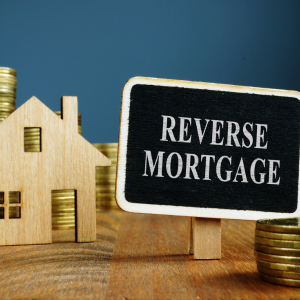
People who own their homes can turn some of their home equity into cash with a reverse mortgage. They can still own their homes. The federal government supports the Home Equity Conversion Mortgage (HECM), which is the most popular option among Baltimore residents. The lender provides the customer with a loan amount based on the value of their home and their age. Most of the time, older homes can qualify for larger loans. With a reverse mortgage, the payments are put off for a while, which makes it stand out. The loan amount is not paid off each month, but when the homeowner dies, sells the house, or moves out. This might be appealing to older individuals who want to have more financial resources upon retirement. Long after the loan is paid off, the owner still retains control of the house, but the equity decreases over time.
If you sell a house with a reverse mortgage, the money from the sale is used to pay off the loan. This includes the base amount, plus interest and fees. Any money that is left over belongs to the homeowner or their estate. When property values change in Baltimore, they can have a significant impact on the amount of wealth remaining. This is because end returns are also affected by changes in property values. The market is always evolving, so homeowners should closely monitor their finances and long-term objectives to stay informed and make informed decisions. They should also think about when they want to sell their home. Additionally, it’s a good idea to consult a skilled financial advisor in Maryland to fully understand the tax and legal implications. Baltimore homeowners who have given it some thought can use reverse mortgages to improve their finances while keeping control of and maintaining their home.
Legal Considerations for Homeowners in Baltimore, Maryland
For homeowners in Baltimore, Maryland, the most important consideration with reverse mortgages is their legal implications. To sell your home with a reverse mortgage, you must be familiar with all the rules in your state. It can be hard to change titles and plan an estate when you own your own home because there are so many rules that you have to follow. To stay out of trouble with the law and out of trouble with Maryland’s rules, you should hire an experienced lawyer. This section provides in-depth information on what homeowners with a reverse mortgage need to do to comply with the law, as well as what they should consider before selling their home.
Essential Legal Requirements in Maryland
If you want to sell your Baltimore, MD, house faster and have a reverse mortgage, it’s essential to understand the relevant laws. The state law outlines the specific steps required to process the reverse mortgage loan and transfer the title to the home. It is essential for individuals seeking to sell their home to ensure that the title is clear and that all outstanding bills associated with the property, including the mortgage, are paid off. You should work with a lawyer who specializes in real estate and reverse mortgages. Additionally, they can collaborate with the lender to ensure that the loan terms comply with Maryland law and verify the title to confirm its clear ownership. When you start to sell your home, taking care of these things early on can help you avoid delays, legal issues, and financial losses.
Checking the title isn’t the only thing you have to do. Tax laws in Maryland say that any bills or liens must be paid off before or during the sale. This includes the amounts still owed on reverse mortgages. It’s up to the homeowner’s heirs to take care of this after they pass away, so estate planning is crucial. You should think about the property, the transfer, and any possible capital gains taxes when you sell your house. The reason for this is that reverse mortgages can make it harder to pay your taxes. A skilled real estate agent who is familiar with the Maryland market, combined with a tax advisor, can help expedite the process and protect the homeowner’s financial interests. People in Maryland with a reverse mortgage can legally and easily sell their home, provided they conduct thorough research and seek assistance from a qualified professional.
Impact of Reverse Mortgages on Home Sale
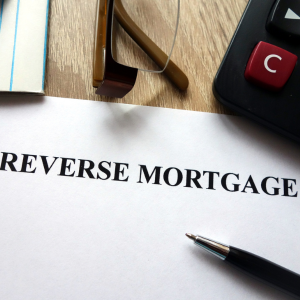
Several key factors should be considered before selling your home with a reverse mortgage. The market in Baltimore, MD, changes frequently, making this especially true. People who own homes should understand how these loans can impact their finances and ability to sell their homes. Changes in the amount of the loan that is still due can affect the chances of turning the home’s value into cash. We will discuss how to prepare ahead of time for a smooth home sale while also addressing any loan and property issues.
Strategies for a Successful Home Sale in Baltimore
If you have a reverse mortgage and want to sell your home, take your time and make a plan. This will help the sale go well and earn you money. Check out the current Baltimore housing market to get a sense of how much your home is worth and how much you still owe on your loan. If you work with a real estate person in your area who has sold reverse mortgages before, you can set a fair price and move quickly. You should also consider the costs associated with selling, such as the agent’s fee, repairs, and setting up the house. Then, to find your net gains, you should compare these costs to the amount of equity you still have. After the sale, ensure that the full amount of the reverse mortgage loan, plus any applicable fees and interest, is paid off using the proceeds from the sale. Talking to your lender will help you avoid last-minute financial issues and ensure you repay your loan correctly.
Plans for your money, the law, and business are all very important. There are professionals who work with reverse mortgages and can help you learn the rules in Maryland and keep your money safe. You might not be able to give your kids the money you want in the future if you make changes to your home. You should review your will to see how these changes will affect it. Tax experts can also tell you what property, transfer, or capital gains taxes may mean for the sale. The safest way for people in Baltimore to sell their home with a reverse mortgage and maximize their proceeds is to seek assistance from experts in these fields.
Contact us today to learn how we can guide you through the process and help you achieve the best outcome for your property.
Navigating the Real Estate Market in Baltimore
Here are some advantages and disadvantages of the Baltimore real estate market for individuals with reverse mortgages who wish to sell their homes. You should know how reverse mortgages affect home sales because they can change how and how much money you make when you sell your house. Chat with people who know about smart ways to sell your home, and think about how HECM loans might make things different. Now, we’ll discuss some tips that people in Baltimore who want to use a reverse mortgage to sell their home can utilize. If you do these things, you are likely to receive a higher offer for your house.
Tips for Selling a Home with a Reverse Mortgage
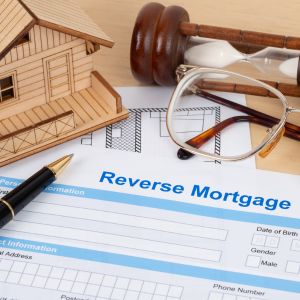
To sell a house with a reverse mortgage in Baltimore’s tough real estate market, you need to do a lot of work ahead of time. Discover how the market is evolving in your area before deciding on a selling strategy and determining the optimal price for your home. Someone who has experience working with reverse mortgages should be hired. What’s going on in the market right now? They can help you set a fair price for your home that will cover the loan and the costs of selling it. Lenders typically lend money based on the value of the house. If you have a reverse mortgage and sell your home, you will need to use the proceeds from the sale to repay the loan. The cash, interest, and any fees are all part of this. Before you sell your house, obtain a letter from your bank confirming the outstanding balance. That way, everything will be clear, and you won’t be caught off guard by money problems at the close. Someone who knows about HECM loans can also help you pay your bills and stay on track with your long-term goals.
Consider making smart changes to your home to enhance its appearance and create a budget plan. Small changes, upgrades, or professional decorating can make a significant difference in how quickly and for how much a home sells in Baltimore, where the market is constantly evolving. You should plan for both your taxes and your belongings. To follow Maryland’s rules and find out how taxes might affect your net income, talk to professionals and make sure your estate papers are up to date. A reverse mortgage can make it easy for people in Baltimore to sell their home. They simply need to collaborate with experts in real estate, law, and finance. In this way, the process will be smooth, and the money will be made.
Looking to sell your house fast for cash in Maryland? Avoid the hassle of costly fixes and drawn-out listings. CR of Maryland I LLC provides fair cash offers and handles everything from start to finish. Do you have questions, or are you ready to get started? Call (443) 278-2743 today for a no-obligation offer.
FAQs:
What is a reverse mortgage, and how does it work in Baltimore, MD?
A reverse mortgage is a type of loan designed for homeowners aged 62 and older, enabling them to convert their home equity into cash while retaining ownership of their home. In Baltimore, MD, this often involves a Home Equity Conversion Mortgage (HECM), which defers repayment until the home is sold, the homeowner moves out, or passes away.
How do reverse mortgages affect the sale of a home in Baltimore?
Reverse mortgages affect a home sale by requiring the loan to be settled from the sale proceeds. This includes repaying the principal loan amount, accrued interest, and any additional fees, which can impact the equity left over for the homeowner or their estate.
What legal considerations should be taken into account when selling a home with a reverse mortgage in Maryland?
Legal considerations include ensuring the title is clear, addressing debts tied to the home, and navigating Maryland’s property laws. It may be beneficial to consult with an experienced attorney to verify compliance and avoid complications during the sale.
How can real estate agents assist in selling homes with reverse mortgages?
Real estate agents can assist by pricing and marketing the home effectively, ensuring it covers any outstanding mortgage obligations. They provide insights into local market conditions and help attract buyers, maximizing equity conversion for the homeowner.
Why is consulting with financial advisors important when dealing with reverse mortgages?
Consulting with financial advisors is crucial to navigate the legal, financial, and tax implications of reverse mortgages. Advisors help in planning effective home sales, understanding financial obligations, and aligning the sale with personal financial goals.
Helpful Baltimore Blog Articles
- Selling An Inherited House In Baltimore, MD
- Does a Seller Pay Closing Costs in Baltimore, MD?
- Selling a House With a Mortgage in Baltimore, MD
- Selling a Home with Unpermitted Work in Baltimore, MD
- Sell a House with a Lien in Baltimore, MD
- Selling a House to a Family Member in Baltimore, MD
- How to Sell a House with Title Issues in Baltimore, MD
- How to Divide an Inherited House with Sibling in Baltimore, MD
- Selling Home with Reverse Mortgage in Baltimore, MD
- Sell a House As-Is Without Inspection in Baltimore, MD
- How Long Can Seller Stay in House After Closing in Baltimore, MD
